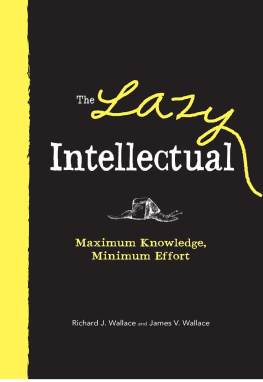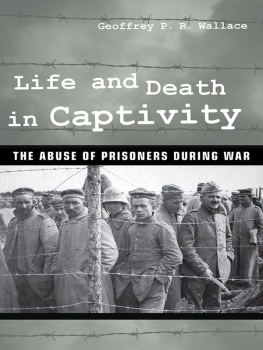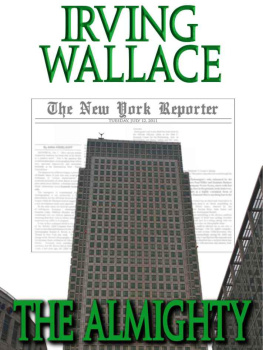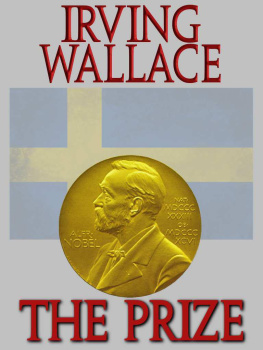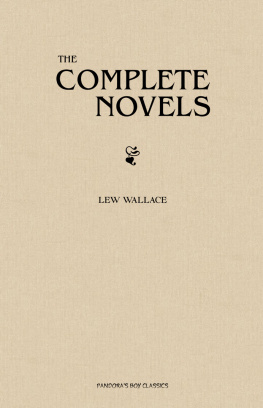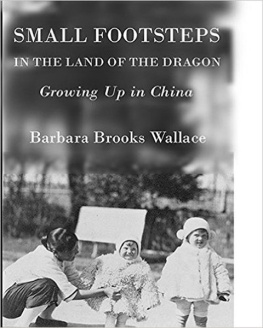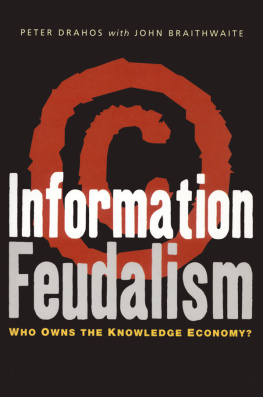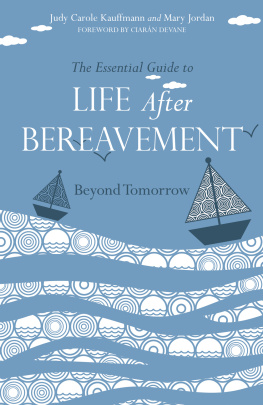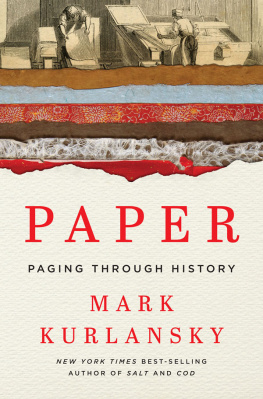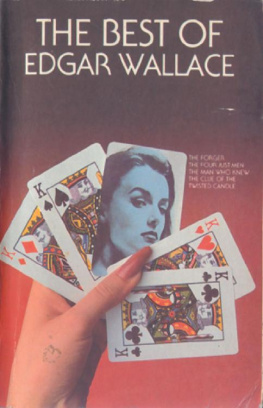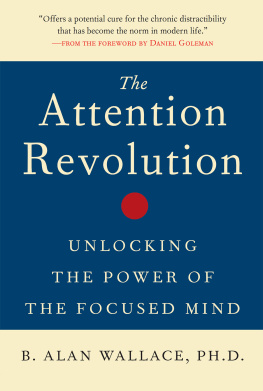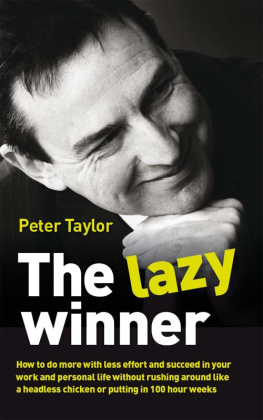The Lazy
Intellectual
Maximum Knowledge,
Minimum Effort
Richard J. Wallace and James V. Wallace

Copyright 2010 by F+W Media, Inc.
All rights reserved.
This book, or parts thereof, may not be reproduced in any
form without permission from the publisher; exceptions are
made for brief excerpts used in published reviews.
Published by
Adams Media, a division of F+W Media, Inc.
57 Littlefield Street, Avon, MA 02322. U.S.A.
www.adamsmedia.com
ISBN 10: 1-4405-0456-3
ISBN 13: 978-1-4405-0456-3
eISBN 10: 1-4405-0888-7
eISBN 13: 978-1-4405-0888-2
Printed in the United States of America.
10 9 8 7 6 5 4 3 2 1
Library of Congress Cataloging-in-Publication Data
Wallace, Richard J.
The lazy intellectual / Richard J. Wallace and James V. Wallace.
p. cm.
ISBN-13: 978-1-4405-0456-3
ISBN-10: 1-4405-0456-3
ISBN-13: 978-1-4405-0888-2 (ebook)
ISBN-10: 1-4405-0888-7 (ebook)
1. Education, Humanistic. 2. Self-culture. I. Wallace, James V. II. Title.
LC1011.W26 2010
370.11'2 dc22
2010027244
This publication is designed to provide accurate and authoritative information with regard to the subject matter covered. It is sold with the understanding that the publisher is not engaged in rendering legal, accounting, or other professional advice. If legal advice or other expert assistance is required, the services of a competent professional person should be sought.
From a Declaration of Principles jointly adopted by a Committee of the
American Bar Association and a Committee of Publishers and Associations
Many of the designations used by manufacturers and sellers to distinguish their product are claimed as trademarks. Where those designations appear in this book and Adams Media was aware of a trademark claim, the designations have been printed with initial capital letters.
This book is available at quantity discounts for bulk purchases.
For information, please call 1-800-289-0963.
Contents
Introduction
If we were to look up the term lazy in a dictionary, we might expect to find some unflattering connotations. Let's skip over such definitions as adverse or resistant to work, slothful, and sluggish, and adopt a more positive, charitable perspective. If instead we consider lazy as economical or avoiding waste, we get a much better picture of the idea behind The Lazy Intellectual .
This book, then, is an economical reference full of fundamental knowledge that represents the core of a well-rounded education. Whether you want to refresh your memory of a long-since forgotten course, missed the subject entirely and desire to get a small dose of the essentials, or merely wish to be able to say something intelligent on a topic without having to put in a great deal of study, this book will help.
In the following ten chapters, The Lazy Intellectual lays out the indispensable facts, crucial high points, and fascinating elements of a basic, comprehensive knowledge foundation. From the teachings of Aristotle to those of Zeno, from mythological deities Athena to Zeus, from the Arabic language to Dr. Zamenhof's Esperanto, and from the literary efforts of M. H. Abrams to those of Emile Zola, this book offers an intensive miscellany of information.
In almost all cases, the biggest problem in assembling this book was determining what to leave out. The exclusionary process was highly subjective but, by offering a brief and entertaining glimpse into an immense universe of knowledge, this book will hopefully encourage the reader to pierce the veil of learning further. In the meantime, enjoy the low-effort scholarship of The Lazy Intellectual .
Chapter One
Philosophy

Philosophy is the study of our most fundamental beliefs and the rational grounds underlying the concepts of being and thinking. The word philosophy comes from the Greek philosophos meaning love of wisdom. This chapter considers some of the main tenets of Western philosophical thought in a roughly chronological sequence.
Early Greek Philosophy
The Pre-Socratics
Philosophy in the Western world began in ancient Greece with Thales, Anaximander, and Anaximenes.
THALES (ca. 625c. 545 B.C. ) was a man of broad interests in science and mathematics and likely traveled to Egypt to learn practical skills. He eschewed supernatural or mystical explanations for the world around him and tried to give rational explanations for natural phenomena. Thales believed that water was the source of all things and also subscribed to the doctrine of hylozoism, the theory that all matter possesses life or can feel sensations.
ANAXIMANDER (610545 B.C. ) was a student of Thales and is known for inventing the sundial and providing the first map of the Greek world. Anaximander disagreed with his teacher and contended that the original substance of the universe was not matter like water, but rather must have been something more immaterial. He thought the fundamental, ultimate stuff of the universe must be the infinite.
ANAXIMENES (580475 B.C. ) said that cosmic air, or mist, extended everywhere, pervading all things in the universe, and was the primordial element.
These three philosophers differed from earlier approaches by explaining the world with natural rather than divine causes.
Pythagoreans
Members of the Pythagorean School, a secret religious society founded by Pythagoras, believed in following strict moral, ascetic, and dietary rules to enable their souls to reach a higher level and be liberated from the wheel of birth. They also believed that numbers were the essence of all things. These early Greeks tried to understand the world in a rational manner and did not think that natural events were determined by the wills of gods. They laid the ground-work for later philosophers by questioning where things came from.
HERACLITUS (540480 B.C. ) changed the focus of early Greek philosophy from emphasis on the ultimate constituents of the world to the problem of change. His main contribution to philosophy is his thought that unity exists in diversity, that reality is one and many at the same time. Contrary to Heraclitus, PARMENIDES (ca. 515450 B.C. ) thought that all change is an illusion of the senses. The same is true of diversity and motion: they are unreal appearances. Like Parmenides, ZENO (490430 B.C. ) took the view that common sense led to absurd conclusions.
Person of Importance Pythagoras
Pythagoras (ca. 580500 B.C. ), one of the most celebrated and controversial of the ancient Greek philosophers and mathematicians, founded a brotherhood of disciples known for its belief in the purification of the soul. He believed in reincarnation, that all living things must be interrelated, and that mathematical principles could explain all of reality. Pythagoras is traditionally credited with the first use of the term philosophy.
Socrates: The First Moralist
Without writing a single word, SOCRATES (ca. 470399 B.C. ) is arguably the most important philosopher in the history of Western thought. What we know of him comes from the dialogues of his student Plato, as well as from the accounts of Xenophon, Aristophanes, and Aristotle. His philosophical mission began with an oracle, or divinely appointed authority, who had declared him the wisest living person. He set out to disprove the oracle and went about Athens questioning others, concluding that: Real wisdom is the property of God.

